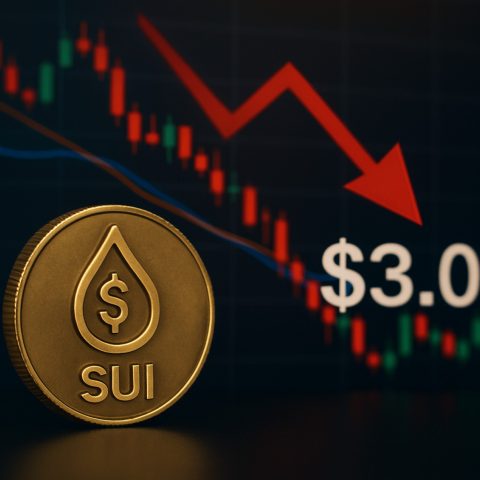In a significant move toward embracing digital currency, Utah is on the cusp of a transformative proposal that could reshape its financial landscape. A new bill introduced by Republican State Representative Jordan Teuscher aims to permit the state treasurer to allocate public funds into digital assets such as Bitcoin and stablecoins.
The proposed Blockchain and Digital Innovation Amendments (H.B. 230) signals Utah’s ambition to become a leader in blockchain technology and digital finance. Under this bill, the state treasurer would be enabled to invest a maximum of 10% of certain state budget accounts into eligible digital assets. These accounts include the General Fund Budget Reserve Account, the State Disaster Recovery Restricted Account, and others critical for fiscal stability.
Moreover, stringent security measures for crypto custody are outlined in the legislation. It mandates that cryptographic keys must be stored in a highly secure manner—accessible only through end-to-end encrypted channels and kept in at least two geographically separate secured data centers. The stipulation ensures a high level of protection for Utah’s digital investments.
This legislative effort not only reflects Utah’s commitment to innovation but also positions the state strategically as a forward-thinking player in the evolving world of finance, ready to adapt to new digital opportunities.
The Broader Implications of Utah’s Digital Currency Initiative
As Utah navigates its potential embrace of digital currency through the Blockchain and Digital Innovation Amendments, the implications extend far beyond state boundaries. This initiative may signify a pivotal moment for the U.S. economy, as states explore digital assets. By investing public funds in Bitcoin and stablecoins, Utah positions itself within the burgeoning global market for cryptocurrencies, potentially attracting tech-savvy investors and innovative startups.
Socially and culturally, Utah’s decision could accelerate wider acceptance of digital currencies in everyday transactions, influencing consumer behavior and investment strategies. As states compete to establish favorable regulatory environments for cryptocurrencies, this could lead to a national landscape where digital currencies are more recognized and utilized, further breaking down traditional financial barriers.
In terms of environmental impact, the scalability of blockchain technology raises concerns regarding energy consumption. Bitcoin mining, for instance, has been critiqued for its substantial carbon footprint. Utah’s leadership could be influential, encouraging a dialogue about sustainable practices within cryptocurrency mining.
Looking towards the future, the bill’s provisions reflect a growing trend toward digital asset diversification. Over time, we may see a shift in how public funds are managed, with more states considering similar legislation. As these digital ecosystems mature, the long-term significance of Utah’s initiative could inspire a new era of fiscal prudence, leveraging technology to bolster state finances while fostering a culture of innovation.
Utah’s Bold Step into the Digital Asset Arena: What You Need to Know
Utah Embraces the Future of Finance with New Legislation
Utah is poised for a groundbreaking shift in its financial policy with the introduction of the Blockchain and Digital Innovation Amendments (H.B. 230). This legislation, spearheaded by Republican State Representative Jordan Teuscher, aims to empower the state treasurer to invest public funds in digital assets, including cryptocurrencies like Bitcoin and various stablecoins. As states across the U.S. begin to explore the potential of blockchain technology, Utah’s initiative could set a precedent for others to follow.
Key Features of the Legislation
1. Investment Limits: The bill allows for the allocation of up to 10% of select state budget accounts such as the General Fund Budget Reserve Account and the State Disaster Recovery Restricted Account into digital assets. This investment strategy is designed to diversify state revenue and enhance fiscal stability in the long term.
2. Robust Security Measures: The proposed legislation emphasizes the importance of security in managing digital assets. It specifies that cryptographic keys must be stored securely and can only be accessed through end-to-end encrypted channels. Furthermore, these keys will be maintained in at least two geographically separate secured data centers. Such measures are crucial for protecting the state’s investments from cyber threats.
Benefits and Use Cases
– Innovation: The bill positions Utah as a leader in adopting blockchain technology and digital finance solutions. This could attract tech companies and financial institutions looking for a progressive regulatory environment.
– Economic Growth: By investing in digital assets, Utah aims to tap into the rapidly growing cryptocurrency market, potentially leading to increased state revenue and job creation.
Pros and Cons
Pros:
– Encourages innovation and technological growth in the state.
– Positions Utah as a competitive player in the burgeoning digital economy.
– Provides a new revenue avenue for state finances.
Cons:
– Risks associated with volatile digital asset markets.
– Potential challenges in securely managing and safeguarding digital assets.
Market Trends and Predictions
The financial landscape is continually evolving, with a significant shift towards digital currencies and blockchain technology. Experts predict that states allowing public investments in cryptocurrencies may experience accelerated economic growth and enhanced global competitiveness.
As regulatory frameworks around digital assets become clearer, Utah may serve as a model for other states looking to harness the benefits of blockchain technology. If successful, this legislation could usher in a wave of similar initiatives across the country.
Conclusion
Utah’s Blockchain and Digital Innovation Amendments signify a bold step into the future of finance, blending traditional financial management with cutting-edge technological advancements. As the bill moves forward, all eyes will be on Utah as it navigates the challenges and opportunities that come with investing in digital assets.
For more insights on advancements in blockchain technology, visit Blockchain.com.







